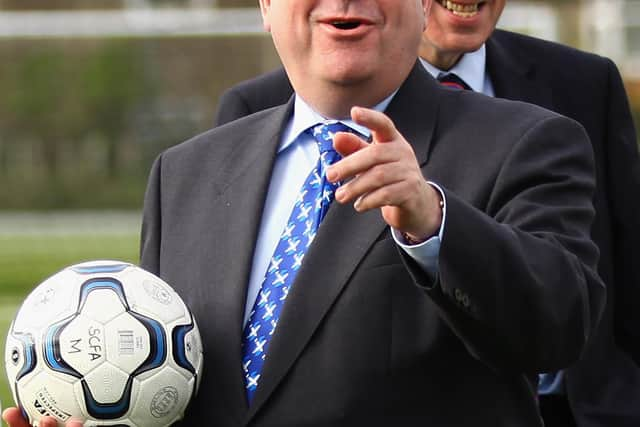SNP's football sponsorship deal a ‘waste of money’, cabinet papers reveal
It was hailed by the Scottish Government as a “no brainer” that would allow authorities to use Scottish football’s showpiece knockout competition to communicate their policy agenda.
But newly declassified documents reveal that Scottish ministers expressed widespread misgivings over their sponsorship of the Scottish Cup, with doubts over whether the multimillion pound deal would have any impact.
Advertisement
Hide AdAdvertisement
Hide AdThe high-profile sponsorship deal saw the premier men’s domestic cup competition rebranded as the Homecoming Scottish Cup as part of the SNP administration’s efforts to publicise the year-long Homecoming event in 2009, the 250th anniversary of the birth of Robert Burns. The following year, it was renamed as the Active Nation Scottish Cup as part of ministers’ efforts to encourage Scots to lead healthier lives.
At the time, First Minister Alex Salmond said the deal with the Scottish Football Association (SFA) was a novel way for the government to help improve the health of the nation and attract visitors to Scotland. “For us, it was a no-brainer to be associated with this iconic trophy,” he explained. “Football is our national sport and the biggest of all, so it's great to have this associated with the Homecoming initiative … Football is the national game in Scotland and sponsoring the Scottish Cup gives the Scottish Government the chance to get our message across on a wide range of issues, such as healthy choices for teenagers and anti-sectarianism.”
Gordon Smith, the then chief executive of the SFA, which had struggled to find a sponsor for the cup competition after the drinks giant, Tennents, ended its long-running association with the tourney, went even further, describing it as an initiative that could make “significant and lasting changes to our national game and our country.”
But weeks before the deal was announced at a press event at Hampden, ministers had privately conceded there were several shortcomings to the deal, with a paper presented to the cabinet by the then health secretary, Nicola Sturgeon, admitting that the arrangement could lead to accusations that it is a “waste of public money.”
The document, released by the National Records of Scotland (NRS), saw Ms Sturgeon point out that the sponsorship outlay was almost on a par with the direct marketing budget for the Homecoming event, and that “officials are clear that this outlay would deliver significant tourism additionality.”


The cabinet meeting in September 2008 also heard doubts about the healthier Scotland messaging aspect of the sponsorship package, with no opportunity to test whether such marketing would be effective. “We would not be projecting messages in a particularly target way and only a relatively small proportion of the overall audience would be the target that we wished to hit,” the document pointed out.
There were also concerns that using the deal to amplify anti-sectarianism messages would be counterproductive, with the document noting that there was no opportunity to test a distinct logo or brand. “Linking anti-sectarianism to the Scottish Cup may not achieve this and may actually dilute the message,” the meeting was told.
In the end, the £2m cost for the two year sponsorship deal was footed by Willie Haughey, the former Celtic director, who handed over the branding rights to the government.
Comments
Want to join the conversation? Please or to comment on this article.